This meeting at the Zaporizhzhia Journalists’ Solidarity Center (JSC) became one of the bright pages of his work.
The well-known Zaporizhzhia journalist Oleksandr Veriyovkin, who headed the city newspaper Zaporizka Sich for many years in a row and always had an active civic position, visited the JSC. So, he came to the military commissariat in the first days of the full-scale invasion. As a reserve officer, he was appointed deputy commander of the security company for morale and psychological support. He fought on the Zaporizhzhia Axis. After almost two and a half years of being at the front, he returned to peaceful life as the soldier-journalist turned 60 years old. It was in Zaporizhzhia JSC that one of his first meetings with colleagues in civilian life took place.
“The Zaporizhzhia JSC has become a kind of attraction for many of our colleagues, and I am no exception. Because I visited it for the first time a year ago, during a short leave from the front, and I was amazed at how necessary and large-scale work the JSC was doing,” Oleksandr Veriyovkin said. “I know that this is comprehensive assistance to Zaporizhzhia media and local mass media (you also helped journalists-warriors, and I am one of them), and displaced journalists, starting from solving everyday problems, the opportunity to work in their profession, professional and safety training – to the creation of jobs for those colleagues who were deprived of the opportunity to work in their newsrooms during the war. In addition, journalists who work in the front-line territories and “on the zero line” are provided with protective equipment, first-aid kits, and rental equipment, Oleksandr noted at the beginning of the meeting.”
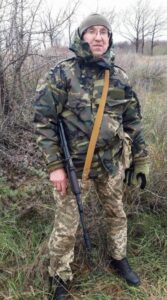 He also focused on one more important mission of the JSC, in particular, on the fact that it gives confidence that you are not alone, that journalists are important, and that the solidarity of colleagues is a great strength. That is why Oleksandr willingly visited us again to meet with his colleagues, chat, and, in some ways, even determine his future path for himself.
He also focused on one more important mission of the JSC, in particular, on the fact that it gives confidence that you are not alone, that journalists are important, and that the solidarity of colleagues is a great strength. That is why Oleksandr willingly visited us again to meet with his colleagues, chat, and, in some ways, even determine his future path for himself.
During the meeting, Oleksandr Veriyovkin talked about the specifics of his service.
“In my unit there were the most fighters from our region, but there were also from other regions, even from Zakarpattia. My most important task was to ensure that the fighters had everything necessary for normal service so that conflict situations did not arise. I had to be a commander, a mentor, and a psychologist at the same time because a lot depends on the mood of the fighter on the front line. To work with boys and individually, if such a need arose. After all, in the army, the tasks of commanders are entrusted to everyone without exception, and they must be fulfilled. And I am very happy that there were no serious violations in the company, the situation was combative and stable.
Most of the fighters have families who maintain constant contact with them, which has a positive effect on the morale and psychological state of people during a combat situation. In dangerous situations, the soldiers of Oleksandr‘s company behaved with dignity, without panic.
Speaking about life at the front, Oleksandr Veriyovkin also recalled purely pleasant everyday events. In particular, during his service in the company, four soldiers got married. And most importantly, no one was killed in his unit.
A separate topic of conversation was purely professional. As a journalist, Oleksandr did not just observe the events; he imprinted something in his memory even without notes – the events were too vivid; he made a lot of notes about everything that was happening, about his comrades-in-arms, whose characters in extreme conditions revealed new facets… In a word, a journalist always remains one, he simply cannot help but collect material.
“There is really a lot of material. But so far, we have managed to write very little,” notes Oleksandr. “Firstly, due to lack of time, and secondly, also because extremely important and epoch-making events are taking place, the scale of the material needs to be understood and analyzed. So, in any case, there is a lot of creative work ahead; he shared his plans with his colleagues.”
“It was a very interesting and professionally useful conversation,” Inessa Atamanchuk, a journalist for the MYH newspaper, said after the meeting. “Because first of all, the advice and thoughts of a colleague with military experience – how not to expose yourself to danger, how to behave, how to talk to soldiers in order to collect the necessary material, will be useful to those who go to the front-line territories. After all, right now, one way or another, certain principles and criteria of war journalism are being formed, which Ukraine has not had until now.”
Secondly, the work experience of the journalist-warrior himself is extremely useful – how he worked with people, how he collected material, and his own thoughts and judgments about certain events. After all, our guys from the front line see and evaluate certain events in civilian life a little more acutely and frankly. And this is of considerable interest to us, it provides information for reflection and creativity.
And, finally, it was extremely important to think about how to restore people, society, and Ukraine after the war. And journalists should also be on the front line in this work. Because how come there are no us? Journalists are needed, and all participants of the meeting unanimously supported this opinion of colleagues.
Call the Zaporizhzhia JSC at 096 277 5352 (Nataliya Kuzmenko and Valentyna Manzhura, the Zaporizhzhia JSC coordinators). The Center’s address is 152 Sobornyi Avenue.
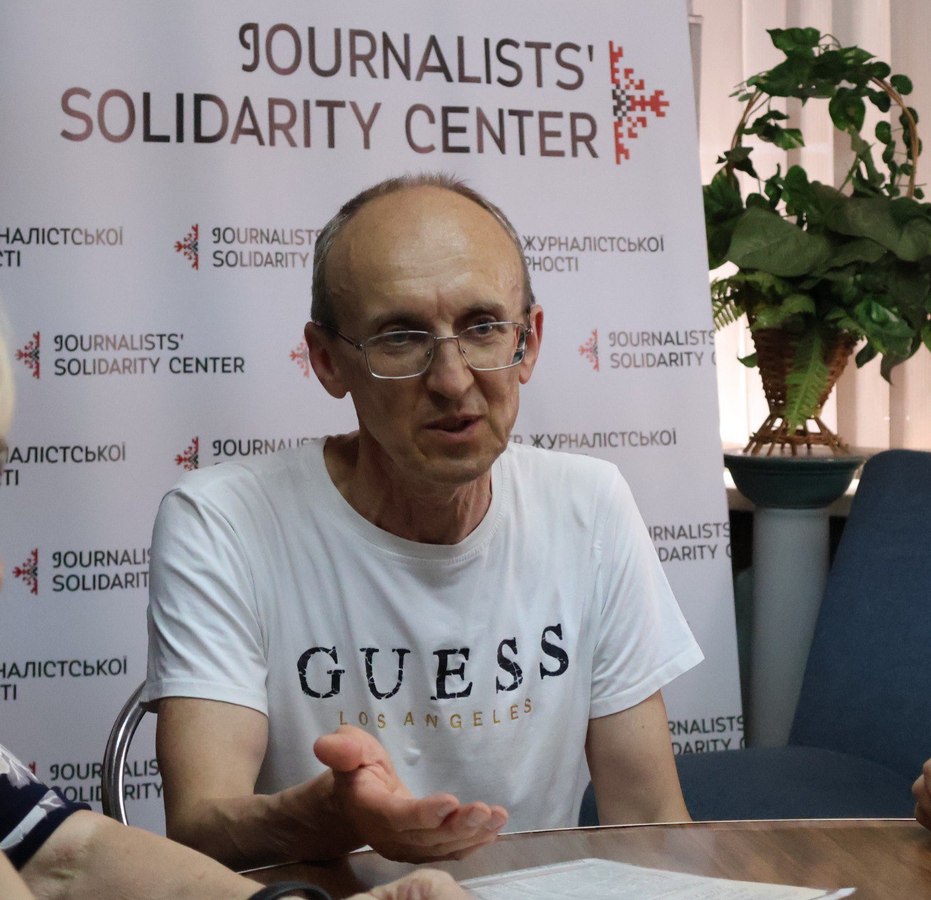
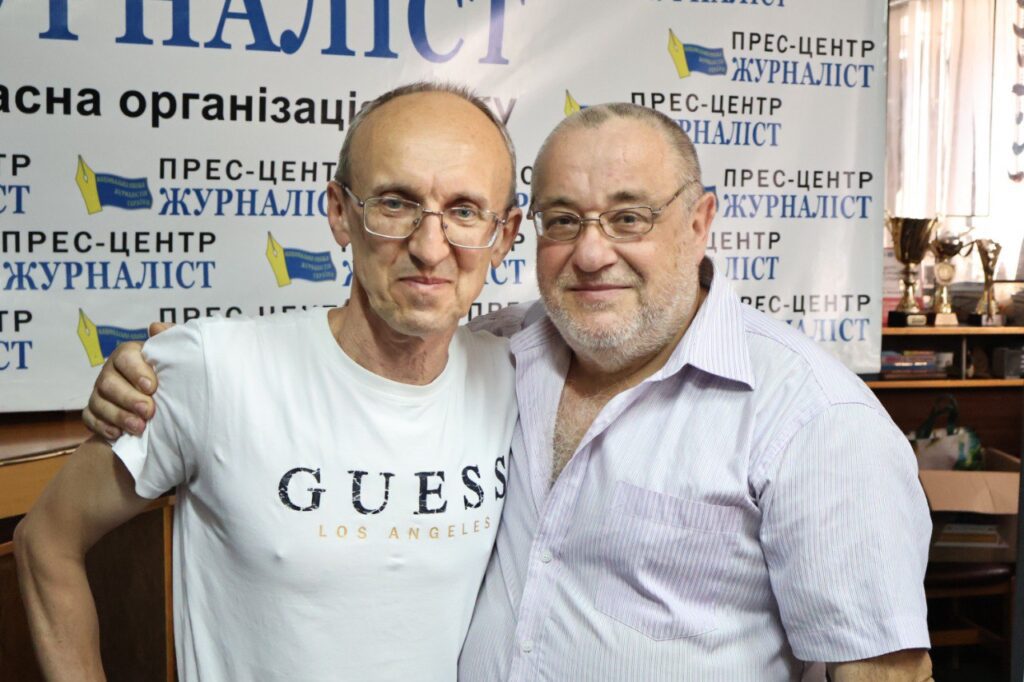
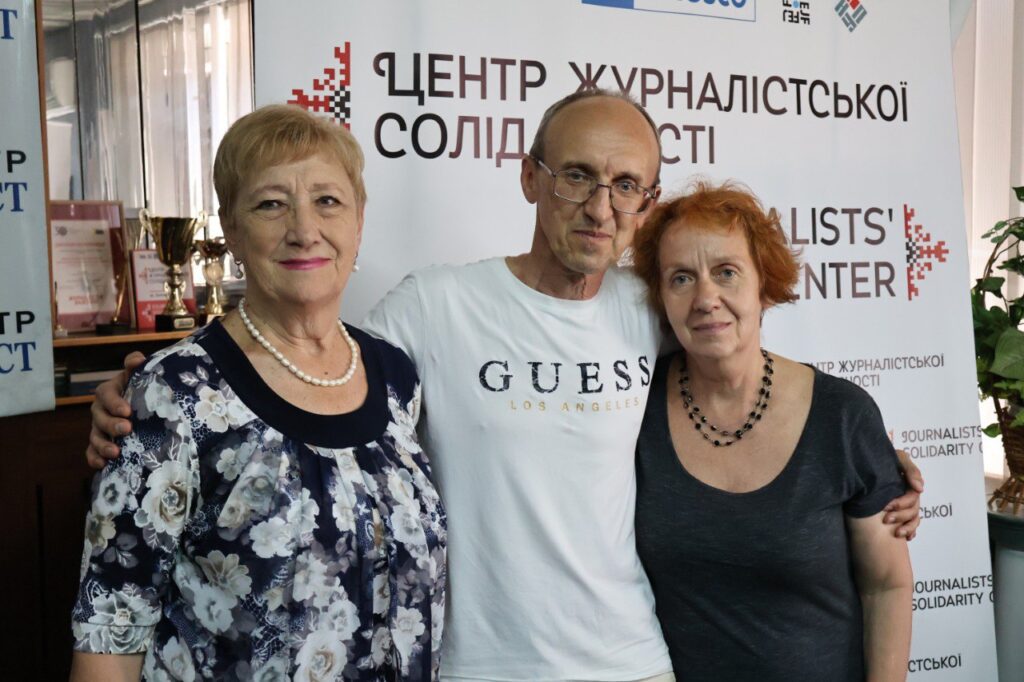
ABOUT JSC
The Journalists’ Solidarity Centers is an initiative of the NUJU implemented with the support of the International and European Federations of Journalists and UNESCO. The initiative is designated to help media representatives working in Ukraine during the war. The Centers operate in Kyiv, Lviv, Ivano-Frankivsk, Chernivtsi, Zaporizhzhia, and Dnipro and provide journalists with organizational, technical, legal, psychological, and other types of assistance.
ABOUT UNESCO
UNESCO is the United Nations Educational, Scientific, and Cultural Organization. It contributes to peace and security by promoting international cooperation in education, sciences, culture, communication, and information. UNESCO promotes knowledge sharing and the free flow of ideas to accelerate mutual understanding. It is the coordinator of the UN Action Plan on the Safety of Journalists and the Issue of Impunity, which aims to create a free and safe environment for journalists and media workers, thus strengthening peace, democracy, and sustainable development worldwide. UNESCO is working closely with its partner organizations in Ukraine to provide support to journalists on the ground.
The designations employed and the presentation of material throughout this digest do not imply the expression of any opinion whatsoever on the part of UNESCO concerning the legal status of any country, territory, city, or area or its authorities or concerning the delimitation of its frontiers or boundaries.
The authors are responsible for the choice and the presentation of the facts contained in this digest and for the opinions expressed therein, which are not necessarily those of UNESCO and do not commit to the organization.
Valentyna Bystrova
Photo by Dariya Zyrianova

 THE NATIONAL UNION OF
JOURNALISTS OF UKRAINE
THE NATIONAL UNION OF
JOURNALISTS OF UKRAINE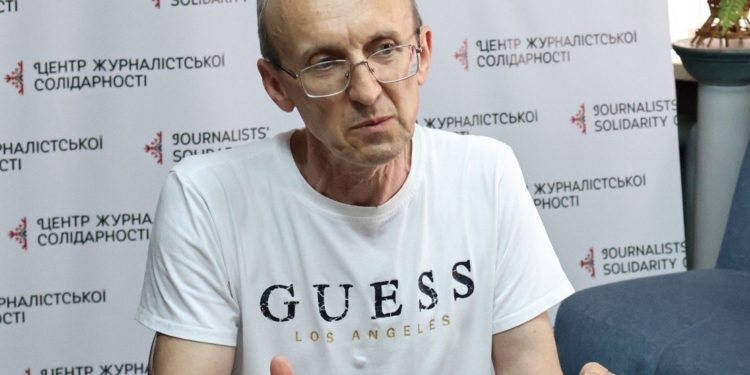
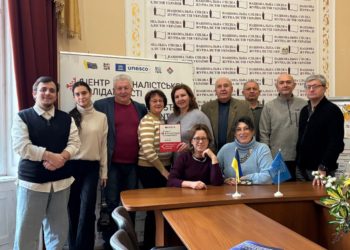

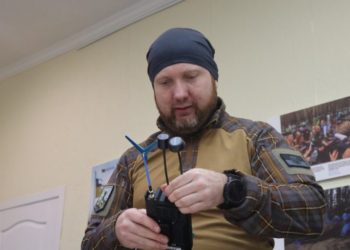













Discussion about this post